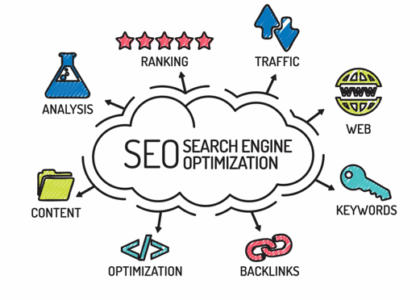The Art of Software Engineering
Software engineering is a discipline that combines creativity, logic, and problem-solving skills to design, develop, and maintain software systems. It is the art of turning ideas into functional solutions that drive innovation and efficiency in today’s digital world.
Key Principles of Software Engineering
Software engineering follows a set of key principles to ensure the successful creation and implementation of software:
- Requirements Analysis: Understanding the needs and expectations of users to define the scope and objectives of the software project.
- Design: Creating a blueprint that outlines the structure, components, and interactions of the software system.
- Implementation: Writing code based on the design specifications and best coding practices.
- Testing: Conducting thorough testing to identify and fix bugs or issues in the software.
- Maintenance: Regularly updating, enhancing, and improving the software to meet changing requirements and address user feedback.
The Role of Software Engineers
Software engineers play a crucial role in every stage of the software development lifecycle. They collaborate with stakeholders, such as clients, designers, and quality assurance testers, to deliver high-quality software solutions. Their responsibilities include:
- Coding: Writing clean, efficient code using programming languages like Java, Python, C++, or JavaScript.
- Problem-Solving: Identifying challenges and devising creative solutions to overcome them.
- Collaboration: Working in teams to brainstorm ideas, share knowledge, and achieve project goals collectively.
- Mentoring: Guiding junior developers and sharing expertise to foster professional growth within the team.
The Future of Software Engineering
In an era dominated by digital transformation and technological advancements, software engineering continues to evolve rapidly. Emerging technologies like artificial intelligence (AI), machine learning (ML), blockchain, and cloud computing are reshaping how software is developed and deployed. The future holds exciting possibilities for innovative solutions that push boundaries and drive progress across industries.
Understanding Software Engineering: Key Concepts, Career Insights, and Industry Trends
- What is software engineering and why is it important?
- What are the key differences between software engineering and computer science?
- How do software engineers approach problem-solving in their projects?
- What programming languages are essential for a career in software engineering?
- What role does testing play in the software development process?
- How can one become a successful software engineer and stay up-to-date with industry trends?
What is software engineering and why is it important?
Software engineering is a discipline that encompasses the systematic design, development, and maintenance of software applications. It plays a crucial role in shaping the digital landscape by translating complex ideas into functional solutions that meet specific requirements. Software engineering is important because it ensures the reliability, scalability, and efficiency of software systems, ultimately enhancing user experience and driving business success. By following best practices and methodologies, software engineers can deliver high-quality products that not only meet current needs but also adapt to future challenges in an ever-evolving technological environment.
What are the key differences between software engineering and computer science?
When exploring the frequently asked question about the key differences between software engineering and computer science, it is essential to understand that while both fields are interconnected, they focus on distinct aspects of technology. Computer science primarily deals with the theoretical foundations of computing, algorithms, data structures, and computational theory. On the other hand, software engineering is more application-oriented, focusing on designing, developing, and maintaining software systems to meet specific requirements efficiently. Computer science provides the fundamental knowledge and principles that underpin software engineering practices, highlighting the theoretical understanding of computing concepts. In contrast, software engineering applies these concepts practically to create reliable and scalable software solutions tailored to real-world needs. Both disciplines play essential roles in shaping the technological landscape by bridging theory and practice to drive innovation and progress in the digital era.
How do software engineers approach problem-solving in their projects?
Software engineers approach problem-solving in their projects with a systematic and analytical mindset. They begin by thoroughly understanding the requirements and constraints of the project, breaking down complex problems into smaller, more manageable tasks. Utilising their technical expertise and knowledge of programming languages, software engineers devise logical solutions and algorithms to address each component of the problem. Collaboration with team members, seeking feedback, and conducting rigorous testing are integral parts of their problem-solving process. By applying critical thinking, creativity, and attention to detail, software engineers navigate challenges efficiently to deliver robust and innovative solutions that meet the needs of their clients and users.
What programming languages are essential for a career in software engineering?
When considering a career in software engineering, aspiring professionals often wonder about the essential programming languages to master. While the specific languages may vary depending on the industry and job role, some fundamental languages that are highly beneficial include Java, Python, C++, JavaScript, and SQL. Java is renowned for its versatility and platform independence, making it ideal for developing cross-platform applications. Python’s simplicity and readability make it a popular choice for tasks like data analysis, machine learning, and web development. C++ is preferred for system programming and game development due to its high performance and efficiency. JavaScript is essential for building interactive web applications, while SQL is crucial for database management. Proficiency in these key programming languages can provide a solid foundation for a successful career in software engineering.
What role does testing play in the software development process?
Testing plays a crucial role in the software development process as it ensures the quality, reliability, and functionality of the final product. By systematically evaluating the software against predefined criteria and use cases, testing helps identify defects, bugs, and inconsistencies that could impact user experience or system performance. Through various testing techniques such as unit testing, integration testing, and user acceptance testing, developers can validate that the software meets requirements, functions as intended, and delivers value to end users. Effective testing not only minimises the risk of errors but also enhances confidence in the software’s performance, ultimately leading to a more robust and successful product release.
How can one become a successful software engineer and stay up-to-date with industry trends?
To become a successful software engineer and stay up-to-date with industry trends, it is essential to cultivate a mindset of continuous learning and growth. Pursuing formal education in computer science or related fields provides a strong foundation, but practical experience through internships, personal projects, and collaboration with peers is equally valuable. Engaging with online resources such as coding tutorials, industry blogs, and online courses can help expand knowledge and skills. Networking with professionals in the field, attending tech conferences, and joining relevant communities enable one to stay abreast of the latest developments and best practices. Embracing a proactive approach to learning, adapting to new technologies, and seeking feedback from mentors are key strategies for thriving in the dynamic landscape of software engineering.






